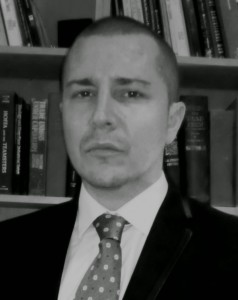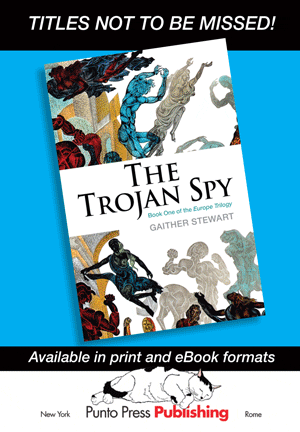..
Naturally like ISIS, Pravy Sektor and similar are also developed to be self-sustaining projects to a large extent, can subsist for long periods of time using the standard methods of apparent self-funding, including organized crime or the seizure of businesses and enterprises. They can also, as we have written previously, be used and swayed by other actors not including the US, and in certain moments may act – willingly or unwillingly – against the US’s actual interests (not just stated interests). This may occur for reasons which are complex but imaginable. Such contradictions end up lending credibility to the claims of deniability shielding the ultimate controlling powers.
..
..
CLICK TO EXPAND
[dropcap]T[/dropcap]he US exerts degrees of control and influence upon several distinct power groups in Ukraine, such as various volunteer battalions, the government itself, mainstreamed opposition to that government, and Pravy Sektor related groups up to and including Yarosh himself. These wane and wax in relation either to the US’s need or to the US’s ability to exert its power. These are not unidirectional; US attempts to exert influence or control do not necessarily result in a success in that endeavor: the targets of influence and control may be compelled to act – either in an instance or in a general pivot – contrary to the needs of the US for reasons of their own survival, and/or as a result of Russian successes to exert influence and control.
..
Difficulties in assessing the situation then arise from this: an established method in 4GW as it works through media and new-media (information war) is to dissemble actual reality, and to manufacture a new reality. As the world’s leading information power, the US can exert fluctuating degrees of influence and control over its proxies.
..
It is difficult to use language to describe reality because words have definitions which often exclude that which they are contrasted with. Reality on the other hand is fluid and real situations can be simultaneously described by more than one word, even if such words when counterpoised to each other may seem to have opposite meanings. Reality can morph into conditions that are better described by some words, only to shift at any time later into a condition which is better described otherwise. Thus, without special care, a syllogistic or axiomatic approach will usually fail.
..
[dropcap]I[/dropcap]n October of 2014, we wrote:
Problems in the Separation of Reality from the Simulacrum “
..
“From the syncretic work we have produced on this subject, drawing from numerous schools such as Baudrillard’s post-structuralism and Kuhn’s theory of the structure of scientific revolutions […] we have attempted to explain both some features of the information war and how the present schema or paradigm is constructed, and how that construct contains certain features which can be manipulated and exploited through the use of simulacrum and hyper-reality.”
..
“More to the point, we have based much of our understanding on the premise that societies composed of managers and the managed must create a paradigm which has exploitable features for the purpose of social control. The Ukraine civil war is the first war in history in which both actual sides (US and Russia) struggle for supremacy using similarly derived theories of new media and their connection to 4GW. While the use of proxies has long been a feature of war, that both sides use proxies in the sense of 4GW doctrines, and that the ‘stories’ being told extend from new media, is a new phenomenon.”
HISTORICALLY, SOCIETIES BASED ON MARKETING AND PUBLIC RELATIONS ARE NATURAL PRODUCERS OF DELIBERATE CONFUSION.
..
“There are some problems, however, for both the US and Russian information and reality managers. Being able to create hyper-reality does not, in the first place, require having a solid footing in the actual reality. In many ways, ‘actual reality’ may be an ever-elusive thing which can never fully be grasped. We are, as human beings, a species which is already born into a reality comprised of the previous generation’s interwoven combination of actual reality and hyper-reality.”
..
“Our society, a social construct, is an outgrowth of our genetic potential. The creation of various primitive forms of hyper-reality is as natural to humanity as the bird constructing its nest. But just as the invention of the train or automobile changed forever our relationship with distance, and even the relative size of the earth, the invention of new media has changed our relationship with actual reality and the kinds of reality and hyper-reality we construct. “
..
“It is not difficult, then, for even the agent of social control, working at the think tank, to lose sight of reality itself. What was that individual’s origin point? Everyone working today on these projects was already born into a world of machines, production of the means of creation and destruction, automated wars, electricity, and mass media.”
..
“From an analytic point of view, this creates a conundrum. Analysis, discourse, map-drawing etc. are themselves a form of hyper-reality creation. Analysis is done in the mind of the analyst, and is drawn from, at best primary sources, but are generally not the primary source itself. It must go through the medium of language and contrived/presented imagery (photos, etc.) before it gets to the analyst. Additionally, even when the analyst is the witness percipient, their interpretations and written or spoken analysis reflect their prior biases, beliefs, prejudices, and thought processes; which in short can be described as defective by way of their subjectivity.”
..
“Thus from the analyst: all words, language; things signifying and signified; which pertain to actual reality, are themselves indistinguishable from hyper-reality. Analysis based on interpreting actual reality and analysis based in interpreting the simulacrum are both, in many ways, hyper-real presentations. The map is not the terrain.”
..
“To problematize ‘objective’ reporting and analysis, is really to lay-out the problems with the concept of objectivity, which leaves us with only a remaining intersubjective agreement [20]. Therefore we can see the power of new-media (which is based on the echoing of information through many subjects, peer to peer), and the transformation of the simulacrum from being a distinct hyper-reality unto itself, into a totalizing entity which subsumes, devours, and overtakes reality into itself. It becomes, then, within the liberal, emotional state, of the Popperian ‘critical rationalist’ paradigm, most appropriate and ‘reasonable’ to uphold the hyper-reality as the actual reality [21]. “
**
[dropcap]I[/dropcap]n conclusion, we might imagine a ‘nuclear war’ of information. The fall-out also contaminates information managers and builders. In an increasing way, even the reality and information managers themselves are suffering from the ‘radiation poisoning’ of information war; they can no longer distinguish between the reality they are creating, or that was created by their opponent, from the reality which they began to work from. It increasingly becomes one and the same.
..
If this is true for them, who have access to much more real information than we do, then it is even truer for us; we who have all along been working largely with information which by definition is manufactured and itself is a social construct.
..
Understanding the world then becomes increasingly difficult and creates very real epistemological problems.
..
Liberalism and its sub-ideology of pragmatism is steeped in anti-intellectualism and a misuse of Ockham’s razor or lex parsimoniae (law of parsimony). It is wrongly used as an arbiter between two theories, in which the simplest theory is viewed as more accurate even when not accounting for all the information, as opposed to a heuristic technique in the development of a model.
..
It is an attractive idea that the complexities of war and strategy can be explained away as being the product of random accidents; that the divergence between stated aims and actual results are a product of blunder and incompetence and not intrigue and dissemblance.
..
Analyzing the motives of conscious actors is not like observing other phenomena in a few important ways; conscious actors may have a strong motivation to conceal their real aims or methods, whereas basic physical, chemical, or biological processes can be observed empirically and claims made about these are falsifiable.
..
Rather, we must look at circumstantial and other non-physical evidence; known theories, past practice, the body of scholarly work on the subject, and instead approach the questions from a prosecutorial perspective.
..
To understand one epistemic dilemma in the use of Ockham’s Razor to describe phenomena, let us look at these well known quotes about this heuristic tool.
“Entities should not be multiplied without necessity.” (William of Ockham)
“Nature operates in the shortest way possible.” (Aristotle)
“Everything should be made as simple as possible, but not simpler.” (Albert Einstein)
..
Warfare does not generally operate on the basis of ‘nature’ in the sense that Aristotle describes – as there are consciously acting players being observed who do not want to be accurately observed, nor upon the economy of modeling that Ockham proposes.
..
In warfare, most entities should be multiplied and made as complex as possible for a number of reasons. One radar tower may cover an entire area, but many radar towers for a single area are preferable because then radar coverage is not lost when the opponent successfully neutralizes one of them.
..
Likewise in strategy: a simple strategy may at first seem preferable in terms of viability and execution, but in the context of a conscious opponent, the complexity of a strategy will aid tremendously in keeping it from being understood and unraveled. In that sense, as with the radar example, more layers are better.
..
The science of economy and efficiency takes on entirely different applications in the context of a struggle between strategic players. One aspect of victory in a war is production, but not only physical production of soldiers and hardware, but in the production of complex strategy, relying on more virtual resources, theories, etc. The side which can afford more inefficiencies has a strategic advantage in any number of scenarios.
..
We must not approach reality at face value, but as a consciously created illusion itself which is constructed specifically with the aim of pursuing a long-term strategic objective, one that includes both the accidental and intentional creation of a false, distorted, manufactured hyper-reality built upon layers of both real and hyper-real foundations.
ABOUT THE AUTHOR
Joaquin Flores is a Mexican-American expat based in Belgrade. He is a full-time analyst and director at the Center for Syncretic Studies, a public geostrategic think-tank and consultancy firm, as well as the co-editor of Fort Russ news service, Special Contributing Editor and Correspondent with The Greanville Post, and President of the Berlin based Independent Journalist Association for Peace. His expertise encompasses Eastern Europe, Eurasia, and he has a strong proficiency in Middle East affairs. Flores is particularly adept at analyzing ideology and the role of mass psychology, as well as the methods of the information war in the context of 4GW and New Media. He is a political scientist educated at California State University. In the US, he worked for a number of years as a labor union organizer, chief negotiator, and strategist for a major trade union federation.
 [dropcap]W[/dropcap]hen the methods of Information War in Fourth Generation Warfare are used in Total War, it results in a war upon the psyche, a war upon cognition, a war upon our very conception and understanding of reality. This will be an increasing feature of our relationship with reality.
[dropcap]W[/dropcap]hen the methods of Information War in Fourth Generation Warfare are used in Total War, it results in a war upon the psyche, a war upon cognition, a war upon our very conception and understanding of reality. This will be an increasing feature of our relationship with reality.


